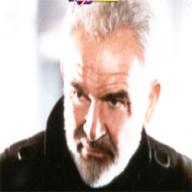Hi Guys,
I have a simple question about sentence structure.
John received a postcard from Lily.
Subject = John
Verb = received
Object = a postcard
then from Lily = is it an indirect object???
Kindly advice, thank you.
Simple sentence structure
2014-06-17 8:06 pm
回答 (6)
2014-06-20 7:47 am
意見者:石破天驚 is right.
The use of compound subjects, compound verbs, and prepositional phrases help lengthen simple sentences.
Simple sentences are usually short.
Tom and Mary are my friends.
I go and eat.
2014-06-21 08:17:31 補充:
Only Julie got it right.
John received a postcard (which was) from Lily.
John ~ subject
received ~ transitive verb.
a postcard from Lily ~ noun phrase which functions as the object of the verb.
from Lily ~ prepositional phrase embedded in a noun phrase. It functions as an adjective.
2014-06-21 08:30:30 補充:
You delete "which was" in the above sentence.
"from Lily" modifies the noun, "postcard".
It is neither an indirect object nor an adverbial phrase.
The use of compound subjects, compound verbs, and prepositional phrases help lengthen simple sentences.
Simple sentences are usually short.
Tom and Mary are my friends.
I go and eat.
2014-06-21 08:17:31 補充:
Only Julie got it right.
John received a postcard (which was) from Lily.
John ~ subject
received ~ transitive verb.
a postcard from Lily ~ noun phrase which functions as the object of the verb.
from Lily ~ prepositional phrase embedded in a noun phrase. It functions as an adjective.
2014-06-21 08:30:30 補充:
You delete "which was" in the above sentence.
"from Lily" modifies the noun, "postcard".
It is neither an indirect object nor an adverbial phrase.
2014-06-18 5:45 pm
"from Lilly" is an adverb phrase, it modifieds the verb "receive".
2014-06-18 2:13 pm
To Ling:
Your concept of simple sentence is not completely correct.
Simple sentence has a "subject" and a "predicate".
The simplest form of predicate is just having the main verb (intransitive) appear on its own without any complements (object included).
e.g. She smiled.
2014-06-18 06:25:27 補充:
There are three types of sentences:
(1) simple
(2) compound
(3) complex
A simple sentence consists of only one single clause. You can have a phrase or more within a clause. Phrase is not the focal point to differentiate among different types of sentences.
2014-06-18 06:47:49 補充:
Someone considers compound+complex as the fourth type of sentence structure.
Your concept of simple sentence is not completely correct.
Simple sentence has a "subject" and a "predicate".
The simplest form of predicate is just having the main verb (intransitive) appear on its own without any complements (object included).
e.g. She smiled.
2014-06-18 06:25:27 補充:
There are three types of sentences:
(1) simple
(2) compound
(3) complex
A simple sentence consists of only one single clause. You can have a phrase or more within a clause. Phrase is not the focal point to differentiate among different types of sentences.
2014-06-18 06:47:49 補充:
Someone considers compound+complex as the fourth type of sentence structure.
2014-06-18 5:29 am
A simple sentence does have subject, verb and object = John received a postcard
Subject = John
Verb = received
Object = a postcard
The following sentence is not a simple sentence as there is a phrase
John received a postcard from Lily.
Subject = John
Verb = received
Object = a postcard
phrase = from Lily (telling us more about the postcard)
----------------------
John buys his brother a pair of shoes as his birthday present.
Subject = John
Verb = buys
Object =his brother
Indirect object = a pair of shoes
phrase = as his birthday present
phrase = from Lily (telling us more about the postcard)
Subject = John
Verb = received
Object = a postcard
The following sentence is not a simple sentence as there is a phrase
John received a postcard from Lily.
Subject = John
Verb = received
Object = a postcard
phrase = from Lily (telling us more about the postcard)
----------------------
John buys his brother a pair of shoes as his birthday present.
Subject = John
Verb = buys
Object =his brother
Indirect object = a pair of shoes
phrase = as his birthday present
phrase = from Lily (telling us more about the postcard)
2014-06-18 12:31 am
"from" is a preposition 前置詞
- used to say who sends or gives something: 從 (某人) 寄來; 從(某人那裡)得到
"from Lily" is a prepositional phrase modifying the noun "a postcard".
Strictly speaking, the object of the verb "received" should be the noun phrase "a postcard from Lily".
Of course, "from Lily" is not an indirect object of "received".
2014-06-17 16:46:10 補充:
John 收到一張 "從 Lily 寄來的" 明信片。
"從 Lily 寄來的" 是形容詞 修飾 "明信片"。
object = 一張 "從 Lily 寄來的" 明信片
- used to say who sends or gives something: 從 (某人) 寄來; 從(某人那裡)得到
"from Lily" is a prepositional phrase modifying the noun "a postcard".
Strictly speaking, the object of the verb "received" should be the noun phrase "a postcard from Lily".
Of course, "from Lily" is not an indirect object of "received".
2014-06-17 16:46:10 補充:
John 收到一張 "從 Lily 寄來的" 明信片。
"從 Lily 寄來的" 是形容詞 修飾 "明信片"。
object = 一張 "從 Lily 寄來的" 明信片
2014-06-17 10:16 pm
We normally change the noun into the third person in reported speech:-
They received (from Lily) a postcard.
from Lily-----indirect object
a postcard------direct object
eg:-Lily received from John a bunch of flowers in a ship-cabin.
from John-----indirect object
a bunch of flowers-----direct object
The American girls don't know that (this)
The rule is indirect before direct.but there are exceptions.
They received (from Lily) a postcard.
from Lily-----indirect object
a postcard------direct object
eg:-Lily received from John a bunch of flowers in a ship-cabin.
from John-----indirect object
a bunch of flowers-----direct object
The American girls don't know that (this)
The rule is indirect before direct.but there are exceptions.
收錄日期: 2021-04-11 20:46:00
原文連結 [永久失效]:
https://hk.answers.yahoo.com/question/index?qid=20140617000051KK00041




